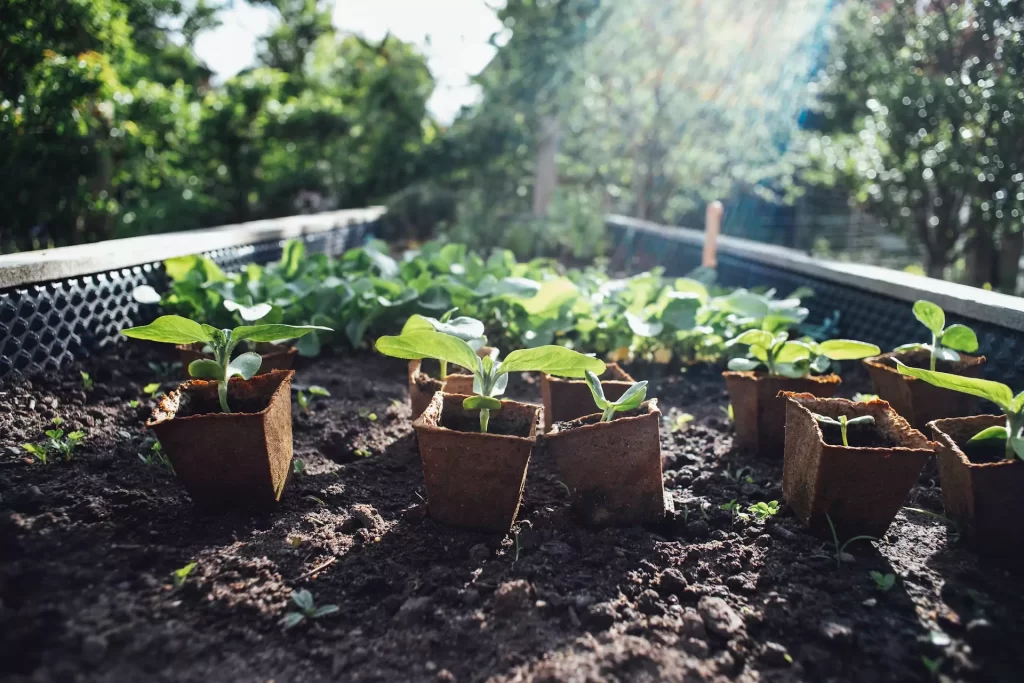Organic gardening focuses on feeding the soil, so it can nourish the plants. Good quality soil with a balanced nutrient content allows crops to better resist disease, pests and weather extremes.
Healthy soil can be achieved by getting a soil test and amending with organic materials such as compost, manure and grass clippings. This saves money on fertilizers and pesticides.
1. It’s Healthy for You
When you grow your own vegetables, herbs and flowers in an organic garden, you can be confident that the food you’re eating is free from chemicals that may be harmful to your health. By avoiding the use of chemical fertilizers and pesticides, organic gardeners rely on alternative methods for keeping their plants healthy such as intermingling different plants that benefit from each other, companion planting, and encouraging natural insect predators to keep pest populations below damaging levels.
You’ll also find that your food tastes better! That’s because your vegetables and herbs are super-fresh. They’ve just been picked, and haven’t had to travel across the country (losing nutrition and flavor along the way). Start your garden off right with a soil test and then amend with Miracle-Gro® Performance Organics All Purpose In-Ground Soil or Miracle-Gro® All Purpose Container Mix, both enriched with aged compost, for the ultimate in garden health.
2. It’s Healthy for the Environment
Organic gardening practices help to reduce the overall environmental pollution. Synthetic chemical fertilizers and pesticides seep into the soil, killing plant life and contaminating ground water when overused. Organic gardeners use methods and techniques like crop rotation, mulching, and utilizing companion planting to promote healthy soil.
This method also promotes a diverse environment, allowing for a wide variety of plants, animals and insects in the garden. This helps to provide food, shelter and a natural habitat for these creatures.
Although there may be more pests in an organic garden, these can be controlled through natural means like attracting beneficial bugs with flowers or using natural pest deterrents such as marigolds and petunias planted among the vegetables. These are all natural and much safer alternatives to the use of synthetic insecticides that can damage human health.
3. It’s Healthy for the Bees
Those who practice organic gardening can plant flowers and vegetables that attract bees. These bees are essential for pollinating these plants so they can bear fruit and veggies. And, they also help with the natural pest control in the garden.
You can help the bees in your garden by planting a variety of flowering plants that are attractive to them, such as foxgloves and sunflowers. You can also help them by avoiding the use of chemical fertilizers and herbicides in your garden.
The produce you harvest from your own organic garden will taste better because it is super-fresh. It didn’t have to be trucked all the way from your local supermarket, losing nutrition and flavor on the way. Just imagine eating a freshly picked cucumber right from your garden or enjoying a plate of berries that were picked from the vine or tree minutes before.
4. It’s Healthy for the Animals
Long before chemical pesticides and fertilizers existed, gardeners grew food organically. They knew that healthier soil produced better crops and more food for their families year after year.
Organic gardening techniques such as composting help reduce land-fill waste. Chemical-free grass clippings, weeds, leaves, wood, and kitchen scraps can all be used to create a rich organic compost that helps reduce plant disease and makes for healthy growing soil.
Organic gardeners also avoid synthetic chemical pesticides, which are harmful to human beings and animals. In fact, many studies have shown that human exposure to pesticides may lead to cancer and other health problems. Avoiding these chemicals is good for your family, the animals that live near your garden and the earth itself.
5. It’s Healthy for the Money
Organic gardening eliminates the need for synthetic fertilizers and pesticides. This can help keep costs down, especially in these expensive times of rising fuel prices.
In organic gardens, soil health is a priority. Organic gardeners focus on adding organic matter to the soil, improving its structure and water retention. It’s also important to plant species that are adapted to your specific climate and soil type.
It’s worth it to spend a little extra money on organic seeds and plants that will grow into healthier, tastier fruits and vegetables than their chemically-treated counterparts. When you bite into a locally grown organic tomato, your taste buds and body will thank you. It’s truly the best value for your money! Organically grown food is rich in vitamins and minerals.












More Stories
Black and White Living Room
The Role of Transformers in Power Distribution and Grid Stability
The Role of Technology in Contemporary Home Design